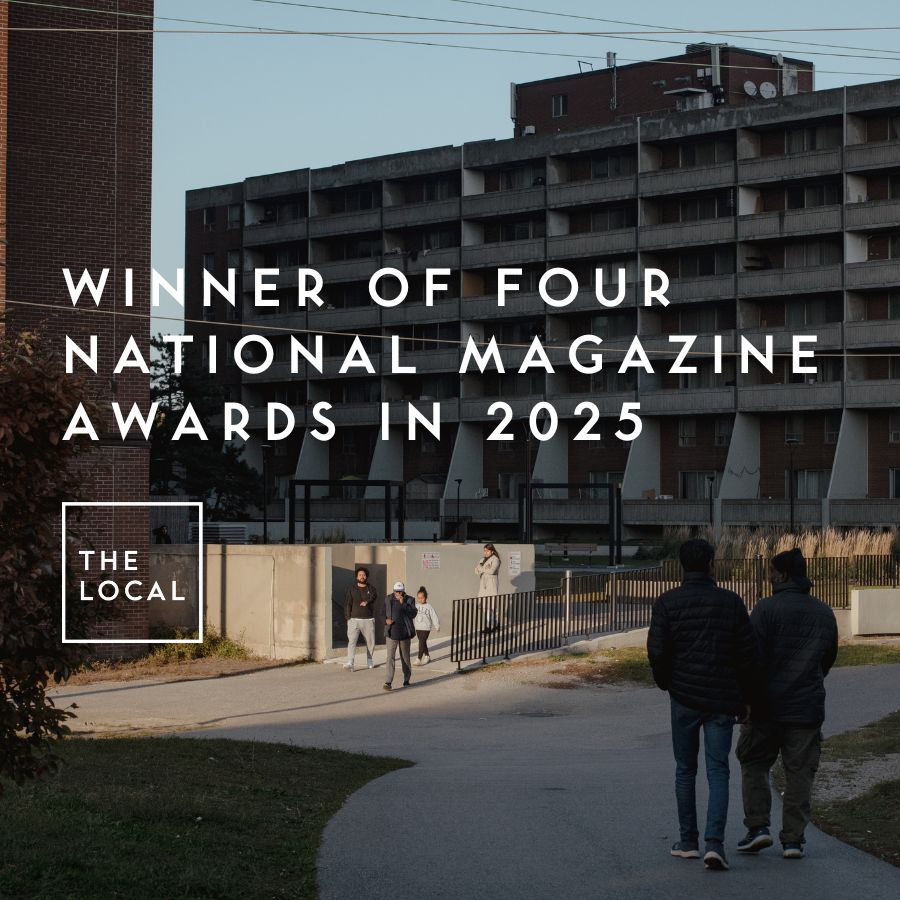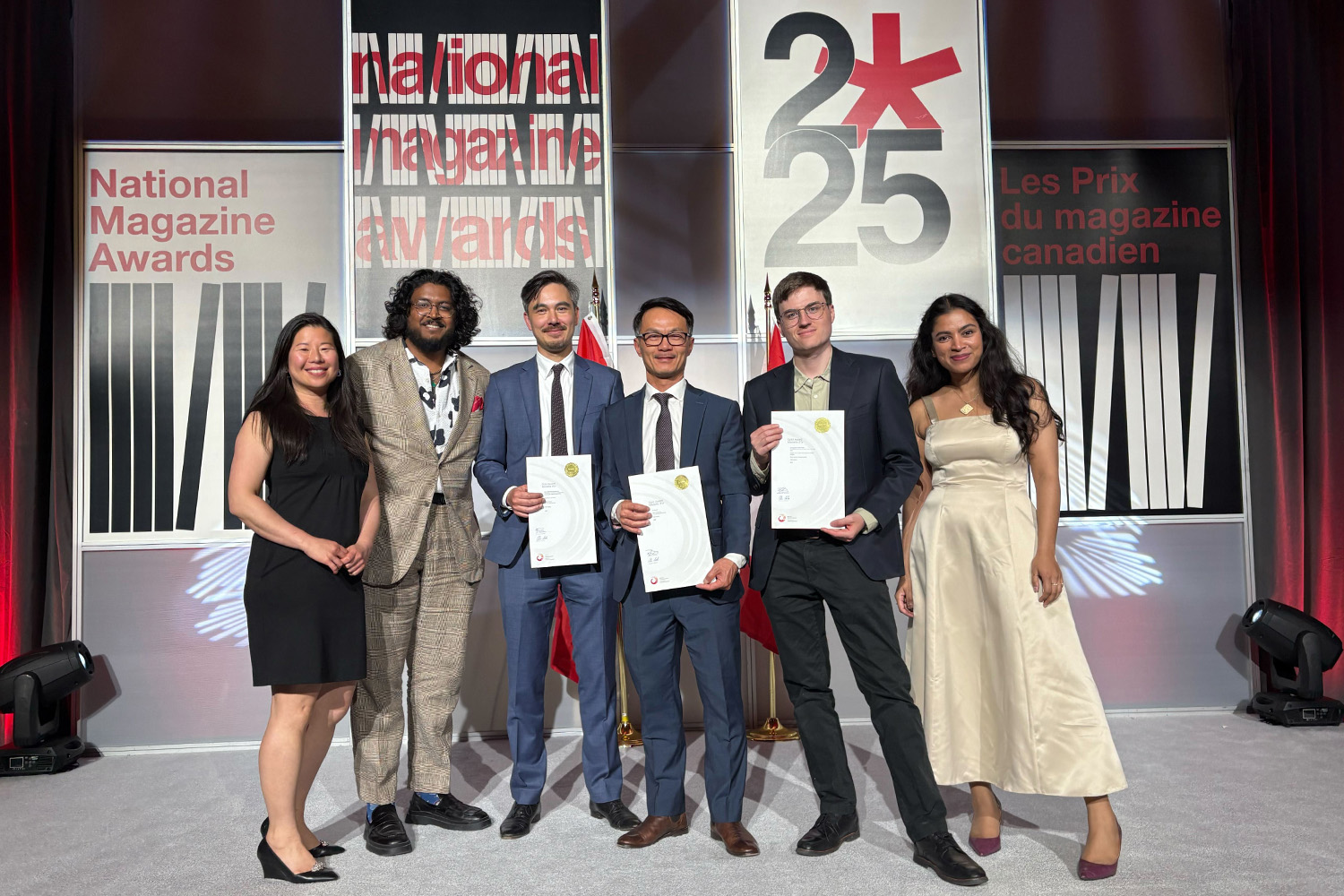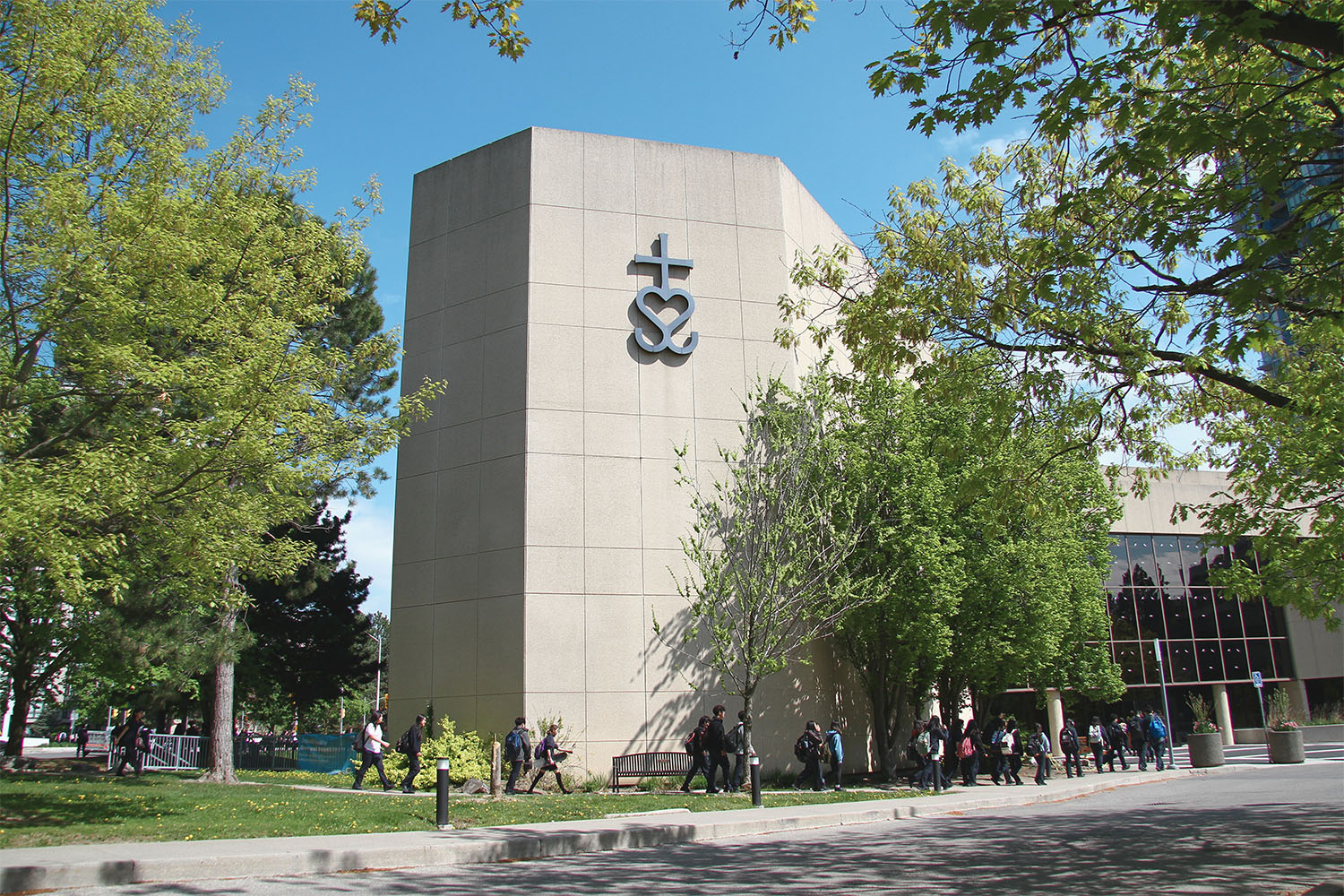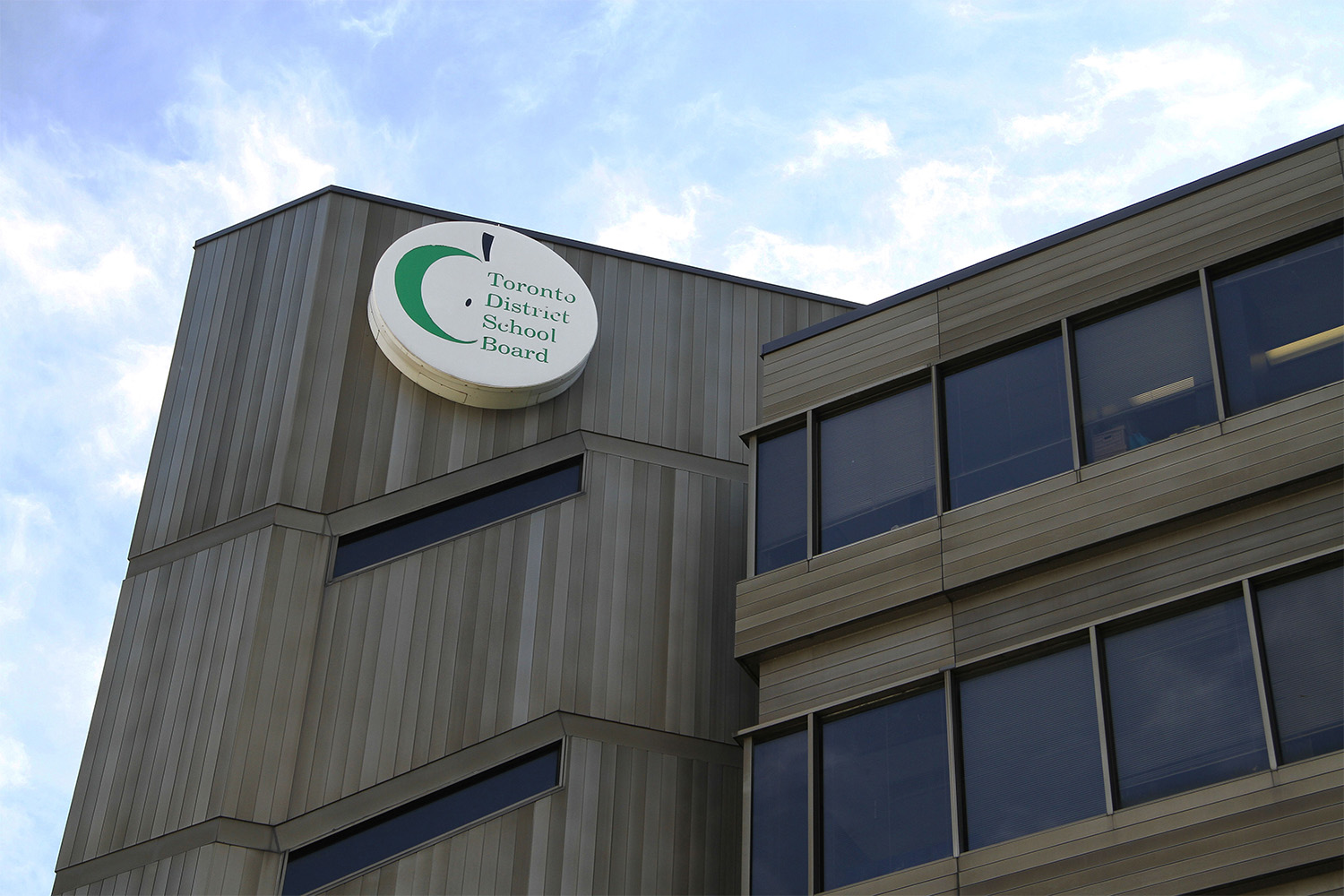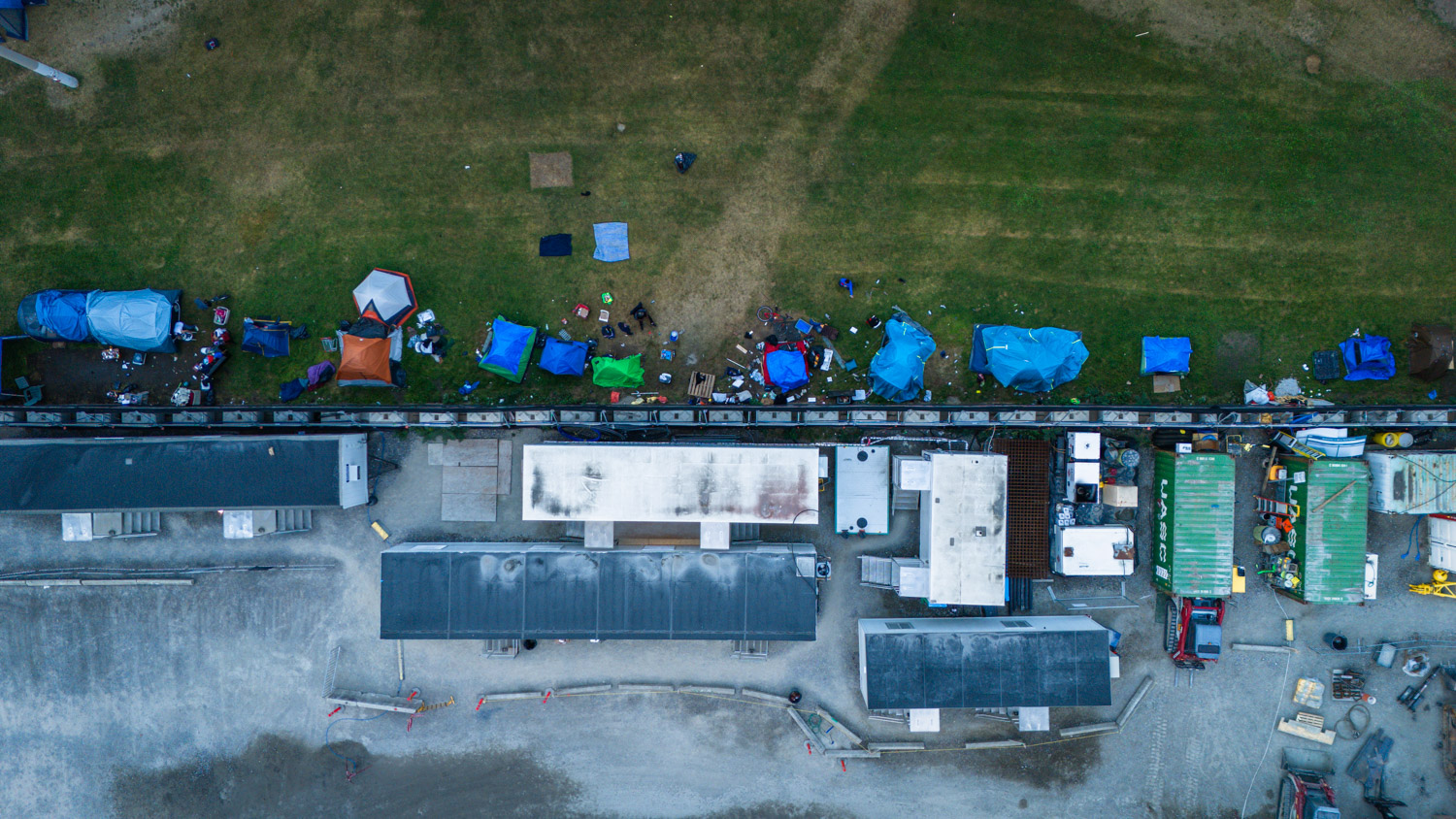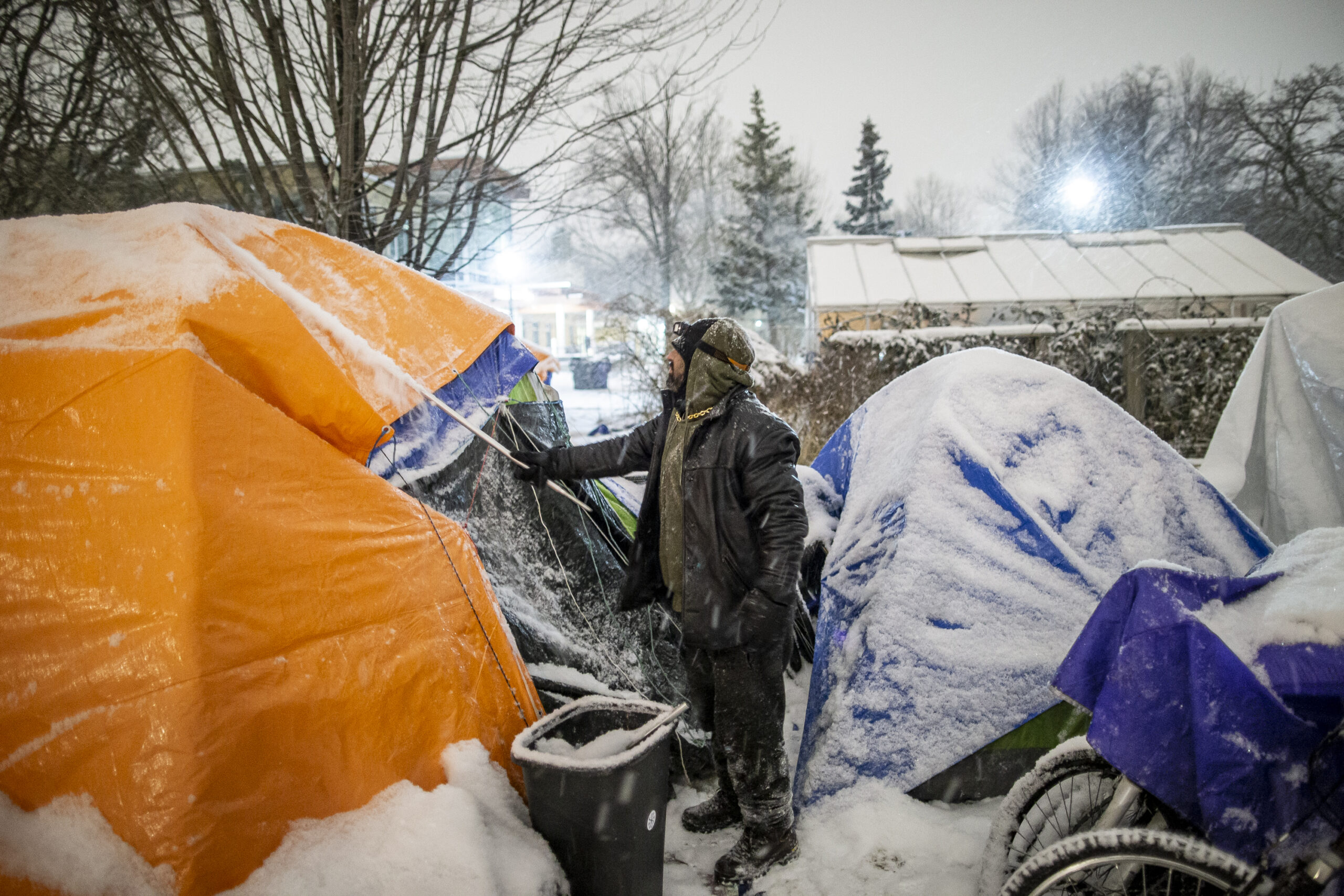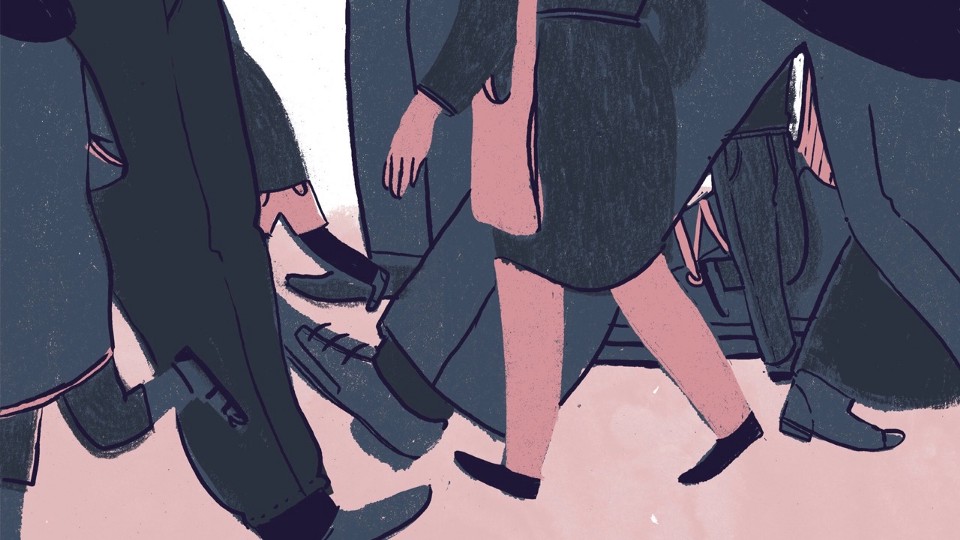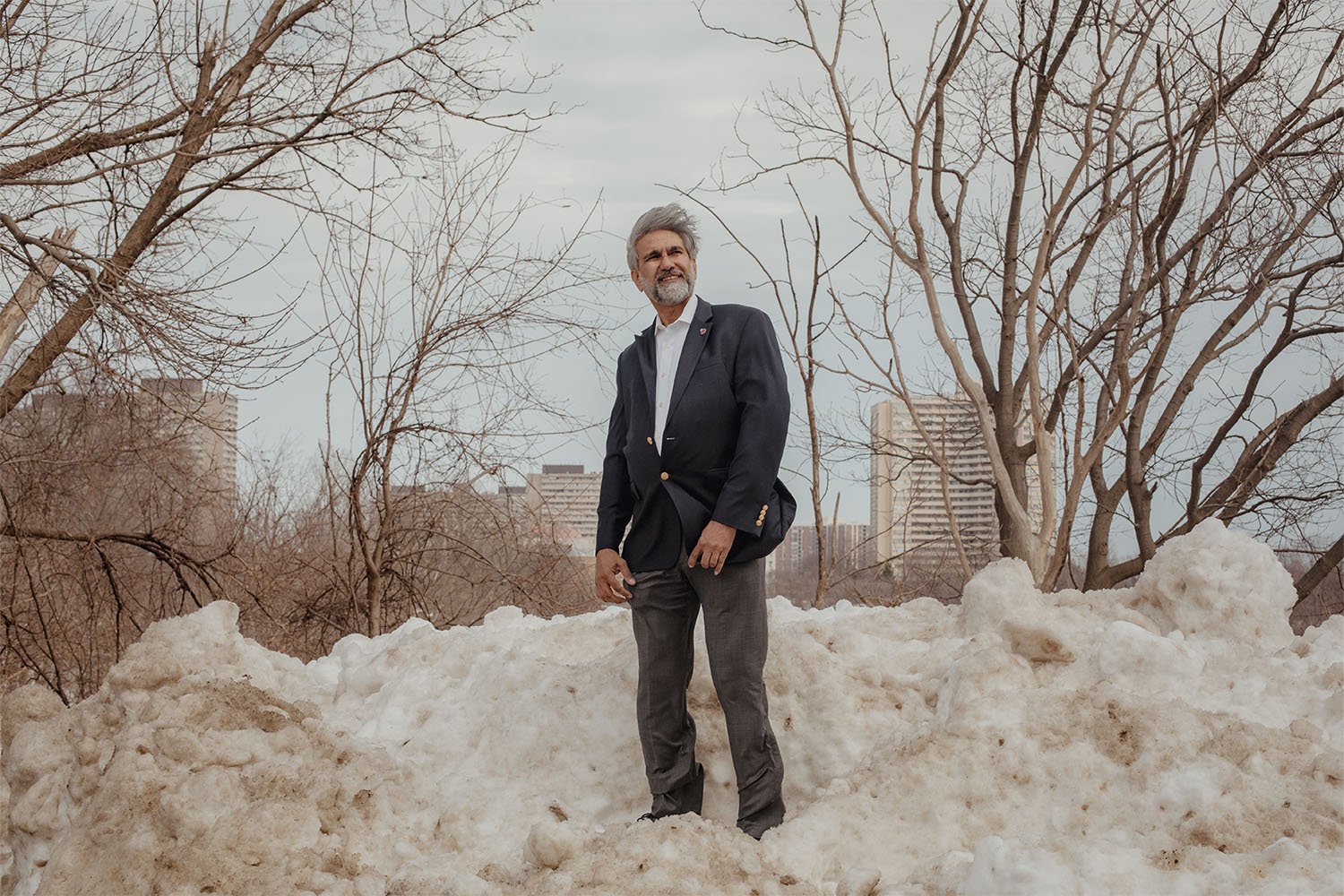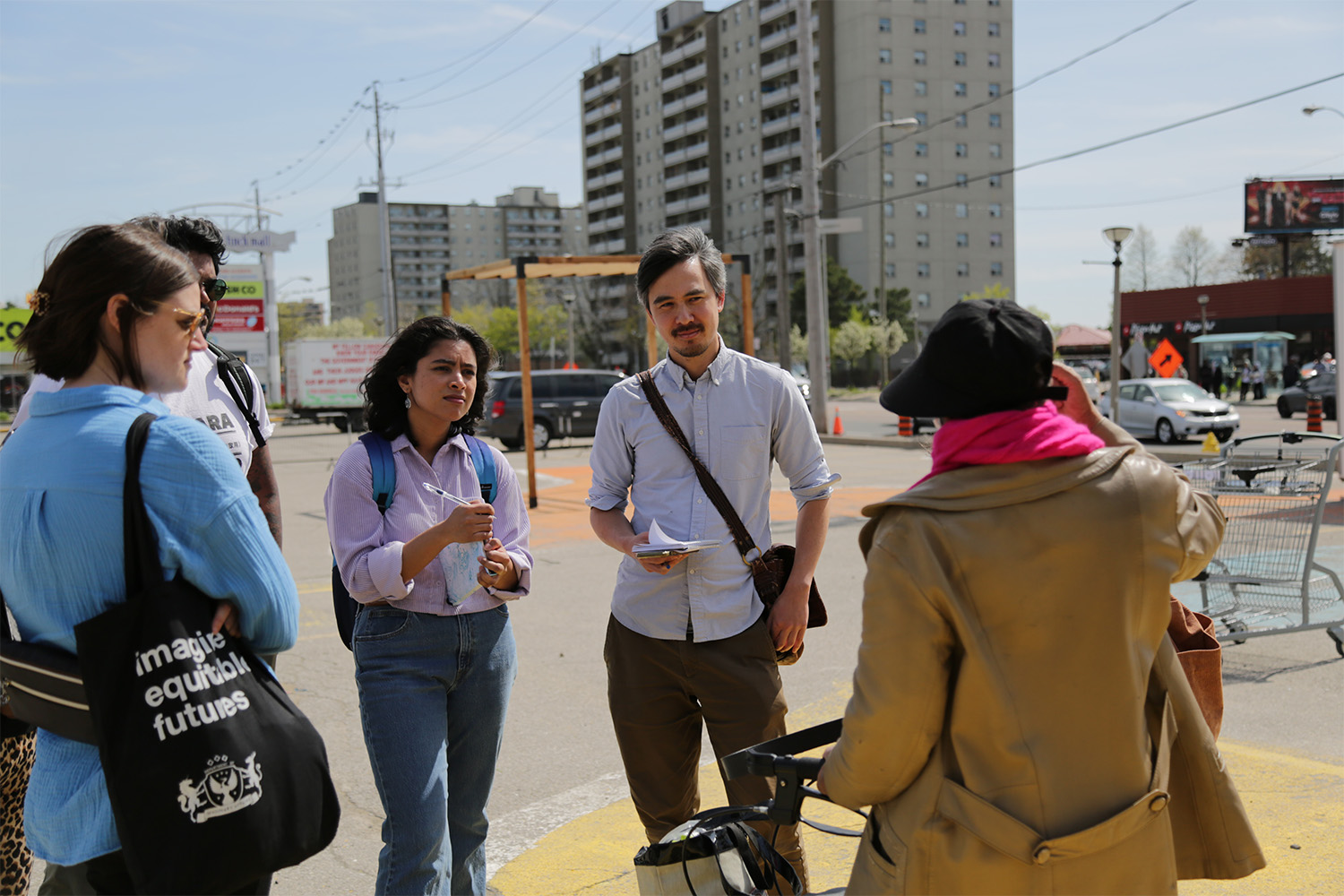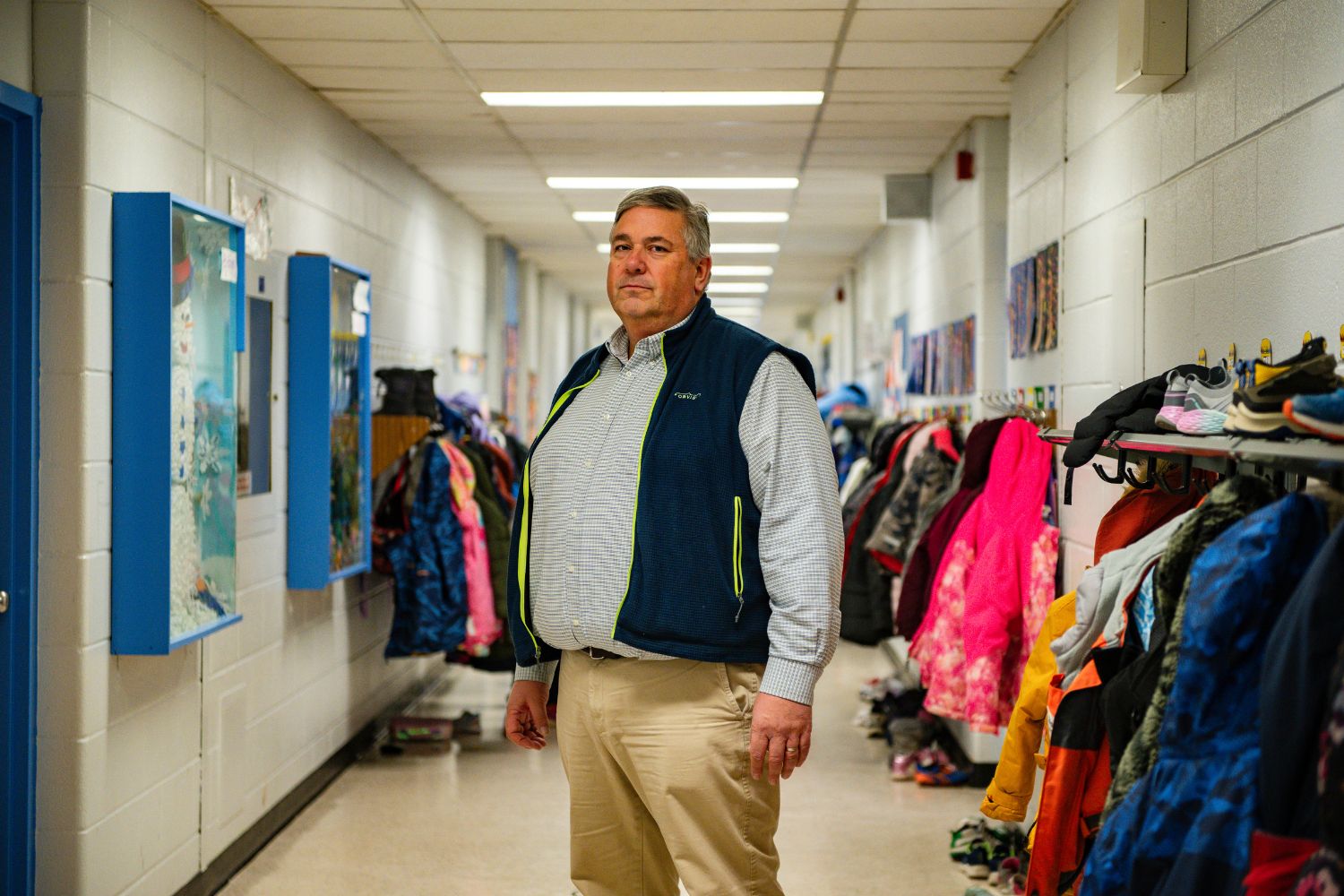
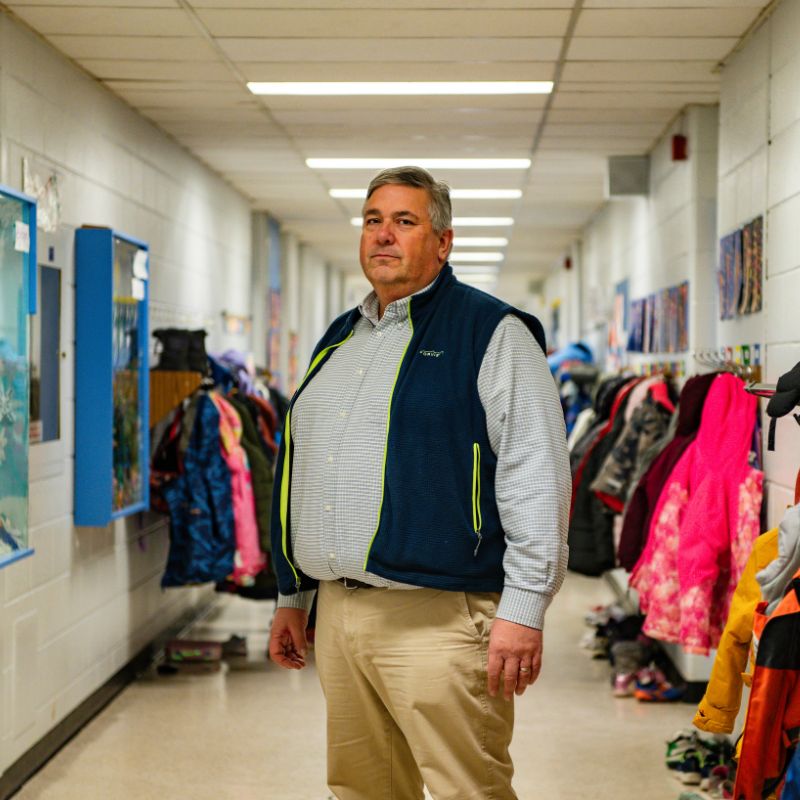
In the cupboard behind his desk, Mark Babiy keeps a set of documents showing the architectural drawings for a new, sorely needed childcare centre at his school. Babiy inherited these papers when he became the principal of Gracedale Public School, located in northwest Toronto near Finch Avenue West and Islington Avenue. He’s been holding onto them ever since, waiting for news of when construction will begin.
The drawings show the centre, intended for 49 children, as a 4,000-square-foot addition to the school building, jutting out into the parking lot. There are diagrams of a breezeway, kitchen facilities, infant changing stations, and cubbies for children to stow their shoes and coats.
The documents also show the date they were submitted: November 2, 2017.
Babies born that year are now in grade one. Most students who needed before- and after-school care back then have gone on to middle school and high school.
Yet since acquiring these documents from his predecessor in the fall of 2018, Babiy has seen no sign and received no word of progress on this project.
“Nothing at all,” he said, even though his school is in an area with some of the highest needs for subsidized childcare in the city.
The project at Gracedale is one of 28 childcare centres based at Toronto District School Board schools that received initial funding approval from the Ministry of Education, dating back to 2017. But due to funding shortfalls and delays in obtaining the Ministry’s approval to proceed, none are being built yet, even as parents across the city struggle to find daycare. And as the wait to begin construction grows, the school board says, so, too, do the costs of building these centres—to the point where the estimated expenses are climbing beyond reach.
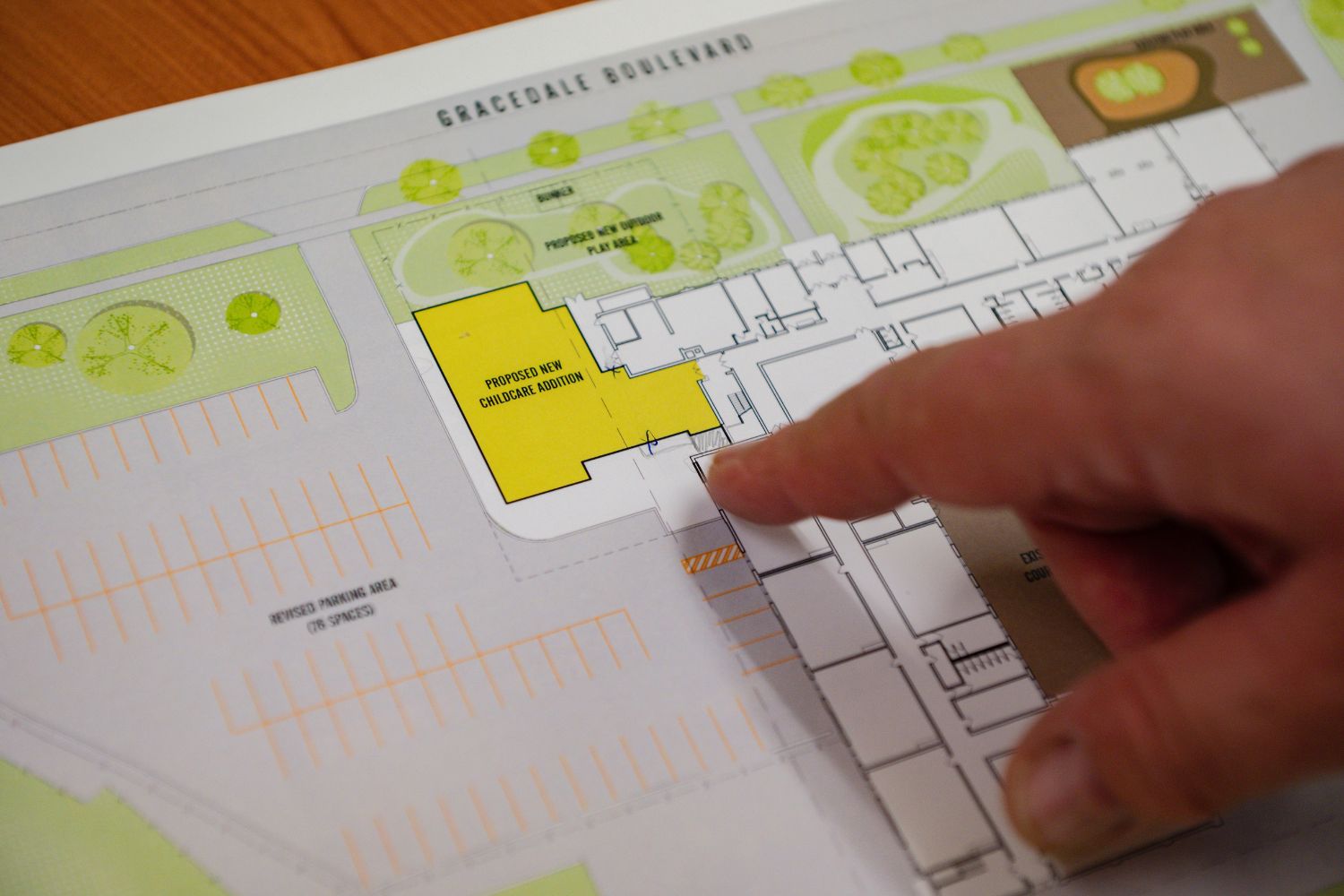
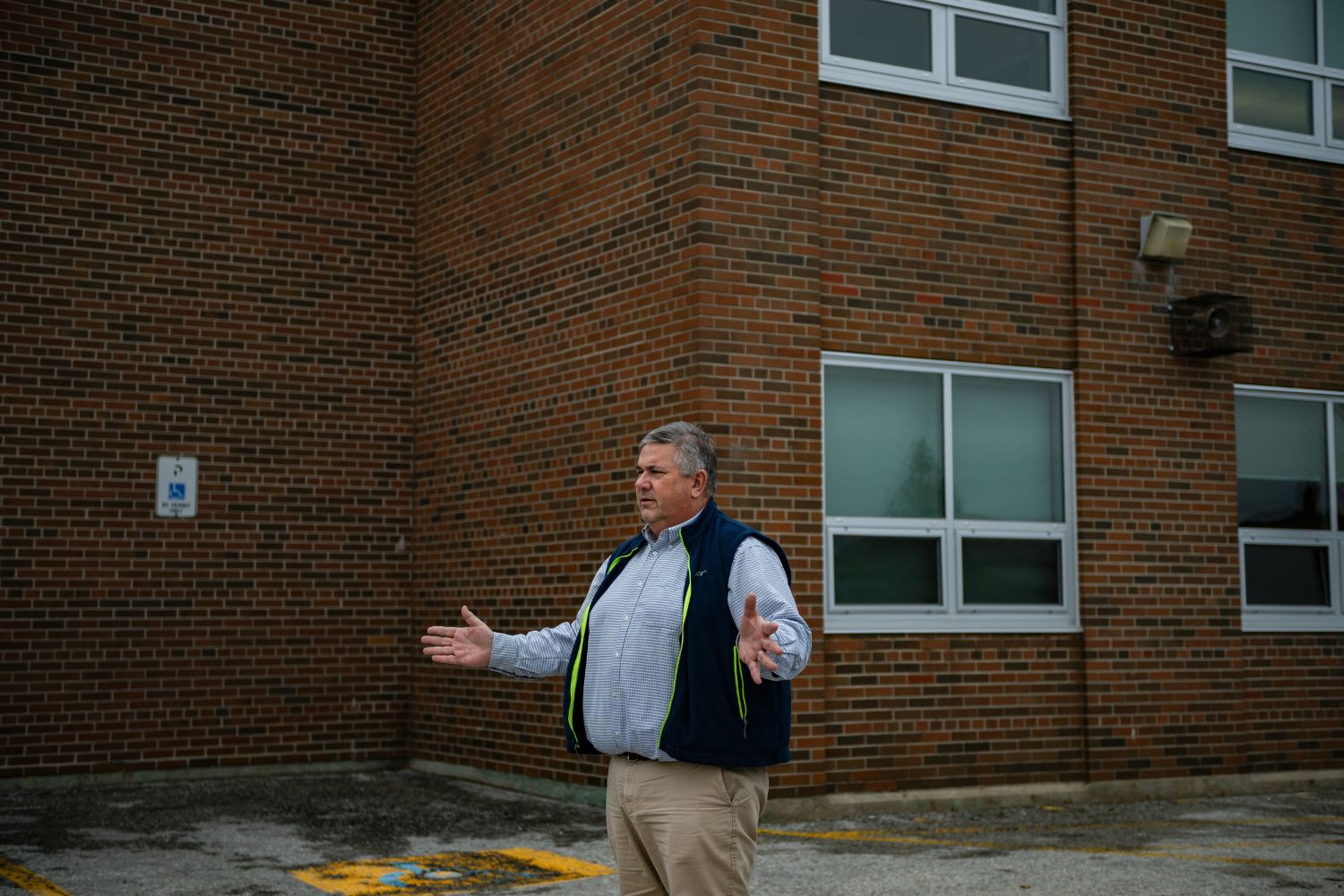
Throughout Toronto, licensed childcare spots have long been scarce. According to the municipal Children’s Services division, there are currently 1,046 licensed childcare centres in the city. Meanwhile, census data from Statistics Canada in 2021 showed there were 123,550 children up to age four in Toronto, and another 129,040 between five and nine.
Many of the existing licensed daycares are clustered around the city core, with fewer in Scarborough and in the northwest. For instance, there are fewer than 20 childcare spaces per 1,000 people in Etobicoke North and in Scarborough Centre. By comparison, there are more than twice as many in Toronto-Danforth or Beaches-East York.
Beyond securing a spot, affording childcare is another obstacle for many families. Children’s Services said its latest data showed 24,663 children were receiving the childcare fee subsidy offered through the city for families that need help covering the costs. An additional 14,610 children are on a waitlist for the subsidy, it said.
Over the years, in press releases and reports, the provincial government has vowed to narrow the chasm between supply and demand. Back in 2017, under then-Premier Kathleen Wynne, Ontario said it was investing $1.6 billion in capital funding to help create 45,000 new childcare spaces in schools and other public spaces in the province over the next five years. Under the current government, the province announced in December 2022 that as part of its deal with the federal government toward delivering the Canada-wide Early Learning and Child Care program, it would create 53,000 new, affordable, licensed childcare spaces by December 2026. That program aims to lower fees to an average of $10 a day for children under six in licensed childcare by September 2025.
If built, it’s expected that Gracedale and other TDSB sites would participate in both the childcare fee subsidy program and the $10-a-day program. But the delays to their construction point to roadblocks in making those plans and promises a reality.
The Ministry of Education approved 28 childcare projects at TDSB sites, most of them in 2017, in some of the most underserved neighbourhoods of the city, as part of a push to create more childcare facilities within schools. Seventeen of them are high-priority projects that are first to go through the process.
Under the arrangement, the Ministry provides funding, the TDSB provides the land and oversees the construction, and once the facilities are built, the City of Toronto would work with the school board to seek childcare operators for each location. In total, the 28 centres would offer 2,035 childcare spots for infants, toddlers and pre-school children. The first 17 centres would offer more than 1,200 spots.
For now, though, these projects are stuck in limbo, mired in procedural delays and ever-escalating costs. TDSB chair Rachel Chernos Lin explained the Ministry’s funding benchmarks don’t reflect current construction costs in Toronto. And as more time passes while waiting for the Ministry’s approval to proceed, inflation, combined with the need to restart the process when tenders expire, mean those costs keep growing.
“We’re wondering what’s taking the Ministry so long. Because it’s just adding to the costs,” she said.
In an October 5 letter to Education Minister Stephen Lecce, written on behalf of the TDSB, Chernos Lin laid out these concerns, pointing out that the delays to getting the childcare centres built have exacerbated inequities in childcare access across the city. She repeated this in a subsequent letter to the Minister, dated November 1, in which she stated that the current estimated costs of the first 17 projects will exceed the Ministry’s approved funding by 43 percent.
This week, Deputy Education Minister Kate Manson-Smith replied with a letter that suggested the school board was to blame. It said, “In fact, none of these projects were aligned with the board’s estimated project completion timelines” and that 11 of them had not yet been submitted to the Ministry for a request for its approval to proceed. The letter said the Ministry would provide 25 percent additional funding—an amount that the TDSB said is insufficient.
Further shortfalls would have to be addressed through other sources identified by the school board, Manson-Smith wrote.
“We understand the school board had every intent to build these projects; however, the projects have not been progressing enough to be completed on time or on budget,” she said in her letter.
She added that at the risk of not meeting its 2026 timeline as part of the Canada-wide Early Learning and Child Care program agreement, “the ministry is eager to explore alternate arrangements.” She did not elaborate on what those arrangements would be.
The Ministry did not respond to multiple requests from The Local, seeking information about the matter.
Local Journalism Matters.
We're able to produce impactful, award-winning journalism thanks to the generous support of readers. By supporting The Local, you're contributing to a new kind of journalism—in-depth, non-profit, from corners of Toronto too often overlooked.
SupportSchool trustee Matias de Dovitiis represents Ward 4, Humber River-Black Creek, where the planned childcare centre at Gracedale Public School would be located.
For de Dovitiis, the lack of movement on these childcare projects is frustrating for several reasons.
For starters, he explained, the TDSB won’t be operating the centres, yet because it has committed to building them, it’s dipping into its own coffers to try to make up for the funding shortfalls. The school board has agreed to use some of its proceeds of disposition—that is, money it has received from the sale of certain TDSB properties—for the construction of the childcare centres.
According to a January 2023 TDSB report, the original funding from the Ministry for the first 17 projects was $35.2 million. But in January 2022, the report said, the Ministry agreed to provide additional funding. Combined with proceeds of disposition, the total approved funding at that time was $64.6 million. Even so, that amount was not enough.
The report stated that separate tenders were issued in the summer of 2022 for the first four projects—Dixon Grove Junior Middle School, Kingsview Village Junior School, and a retrofit at Kipling Collegiate Institute in Etobicoke, and an addition at Birch Cliff Public School in Scarborough. Even though there were multiple bids for these projects, the lowest bids for each was more than the approved budget and funding, it said.
At different stages of each project, the TDSB must seek approval from the Ministry, explained Chernos Lin. If a tender comes in higher than approved, the school board must obtain additional approval from the Ministry to proceed. For some projects, it’s taken up to two years to receive certain approvals, according to TDSB Spokesman Ryan Bird.
“If they don’t have childcare, they can’t go to work.”
The wait for the Ministry to give the go-ahead, combined with insufficient funding, form a vicious cycle. These approvals need to happen before tenders expire, Chernos Lin explained. Otherwise, the TDSB has to start the process all over again, and the costs will go up even further, which will require the school board to seek even more funding from the Ministry.
“This government talks so much about cutting red tape,” she said, yet these projects are tied up in it. “When it’s costing taxpayers more money to build projects in a way that means they don’t get done, and it’s really interfering in a way that is probably not productive, then we need to find another process.”
De Dovitiis said he estimates the TDSB has also spent tens of thousands of staff hours on these projects, including to apply for various approvals and building permits. If left too long, he said, the TDSB would need to reapply for these permits, too.
All this means the school board is spending resources that could be going toward much-needed school repairs, like fixing windows at high schools, de Dovitiis said, to instead build “childcare centres that won’t be ours.”
Asked whether the city has spent any of its money to prepare for the building of these childcare centres, the City of Toronto said in an email that funding is provided directly from the Ministry to the school boards. The funding is not provided by the city, it said.
De Dovitiis said what frustrates him further is that access to licensed, subsidized childcare would be a game-changer for many families in his part of Toronto. A lot of people in his ward are struggling to make ends meet, he explained. “If they don’t have childcare, they can’t go to work. They can’t pay the rent.”
For Shannon Elbers, having childcare nearby would potentially mean being able to work full-time and perhaps go back to school to become a personal support worker. Currently, Elbers works part-time as a driver for UberEats. She needs to be home by the time her youngest children, ages four and nine, return from Gracedale Public School around 3 p.m.
“There’s nothing for kids here. It’s the worst area,” Elbers said.
Many of her neighbours are in a similar situation, she added; they’re either finding childcare far outside the area, “or not even bothering.”
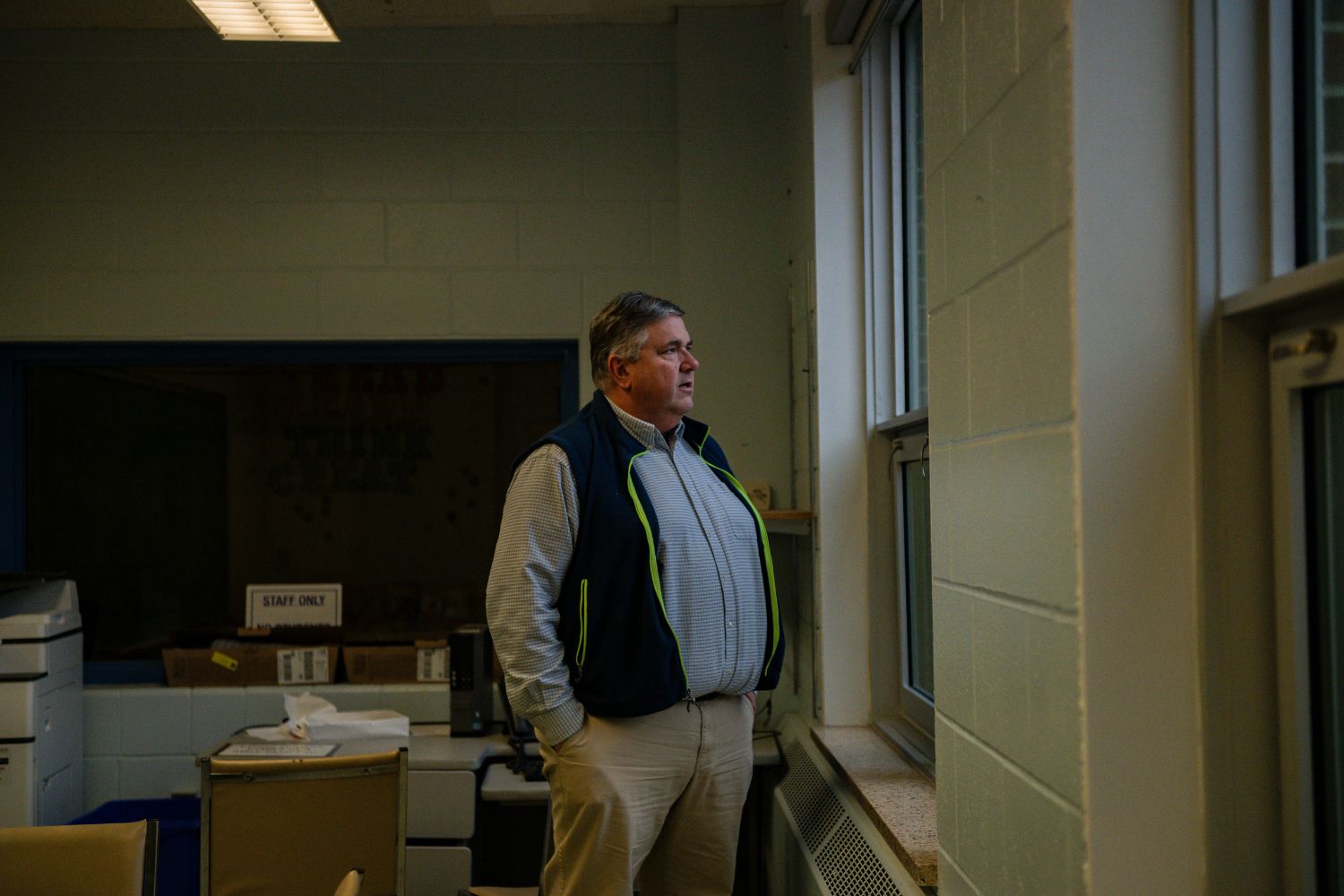
At Gracedale, Principal Babiy said a lot of Torontonians don’t realize how geographically isolated his school community is from the rest of the city. Located north of Finch Avenue West, between Islington Avenue and Weston Road, the neighbourhood is far from many health and social services. For example, Sick Kids Hospital is nearly two hours away on public transit.
Any parent who needs to go downtown during the day would be hard-pressed to return in time to pick up their children by the time school lets out at 2:45 p.m., Babiy said.
Even though there is an after-school childcare program at Gracedale, run by a non-profit community group, it has limited spots and is only offered three days a week. (While the planned TDSB childcare projects are meant for babies and pre-school-aged children, childcare centres in schools often also run before-and-after-school programs, Chernos Lin said.)
The only licensed childcare centre that serves the Gracedale school community is slightly more than a kilometre away.
That walking distance may not be particularly arduous for an able-bodied adult. But it’s a different story for a small child.
“From Gracedale all the way to Islington and Finch is very far for a four-year-old to walk,” said Shanna-kay Brown, whose youngest child started kindergarten at Gracedale in September and makes that walk everyday after school.
To secure that childcare spot, Brown, who is a single parent, got on a waiting list as soon as she found out she was pregnant. As a childcare subsidy recipient, she pays around $250 to $300 per month.
Brown said having childcare within the school itself would provide some relief for her family. Currently, she drops off her children, ages 4 and 11, at her mother’s home every evening, where they spend the night. Her job at an automotive parts factory starts at 6 a.m., requiring her to leave her house at 5:30 a.m.
Brown’s mother then takes the youngest to Gracedale, and her older child walks to middle school. The older child no longer needs daycare, but the youngest is picked up from school by the childcare centre staff in the afternoons. When Brown is finished work, she goes to the daycare to get her around 4:30 p.m.
The transition between school and daycare is extremely challenging for her 4-year-old, who has autism spectrum disorder, Brown said.
“It’s hard for her,” she said, explaining the daycare staff who come to pick her up have trouble managing her when they are walking all the other children at the same time. “It’s not fair to them.”
Brown said she only learned recently about the plans to build a childcare centre at Gracedale.
“If there was a daycare within that facility, it would have been perfect,” she said.
But when she asked staff at her daughter’s daycare about it, they could only share what they’d heard—that people had been trying to make it happen for years. “But nothing came about it.”
